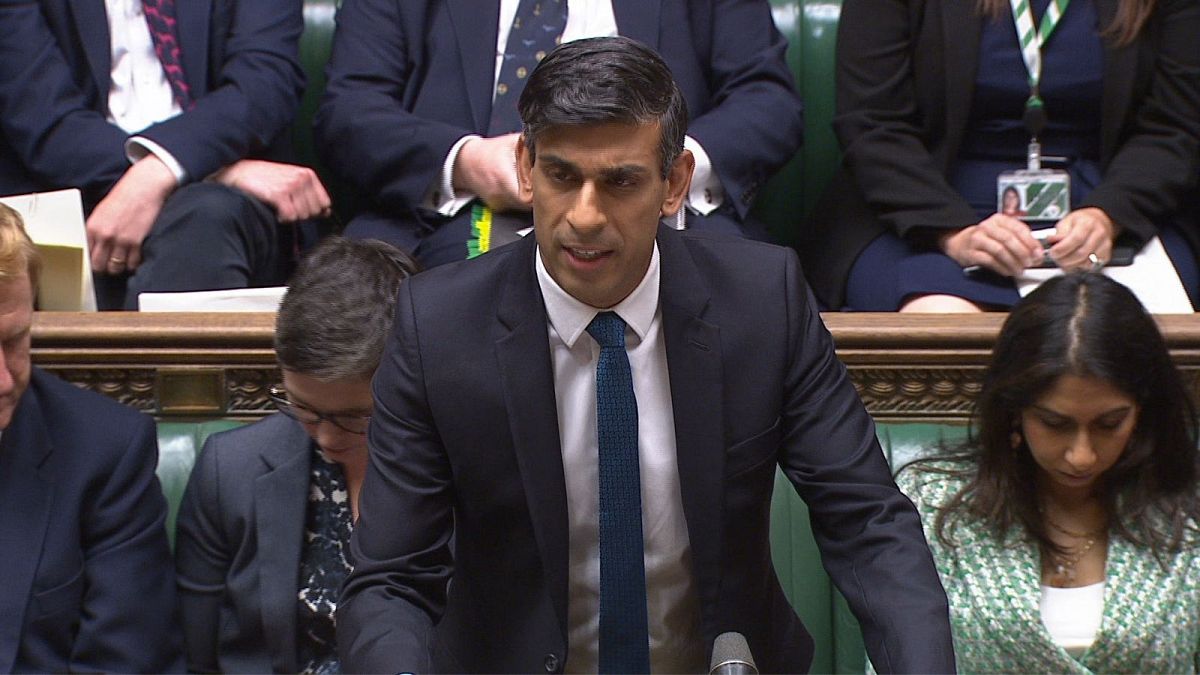It was illegal to be gay in the UK military until 2000 and Rishi Sunak has said sorry to those who were sacked or forced out.
British Prime Minister Rishi Sunak on Wednesday apologised on behalf of the government for the "horrendous" treatment of LGBT people in the military until they were allowed to serve in the year 2000.
"The banning of LGBT people from serving in our armed forces until the year 2000 was an appalling failure of the British state," the Conservative leader told parliament.
“During this time, many have suffered the most horrific sexual abuse and violence, homophobic harassment, while courageously serving this country,” he continued.
"Today, on behalf of the British state, I apologise," Rishi Sunak said.
Until a change in the law in 2000, lesbian, gay, bisexual or transgender people were not allowed to serve in the British army.
“Today, we want to tell each of the former soldiers, sailors and airmen, many of whom are now retired, that you are one of us”, said Secretary of State for Defence Ben Wallace.
"Tolerance, the values of Western democracies for which we asked you to fight have been refused to you. This was a serious mistake", added the minister.
Veterans' minister Johnny Mercer said it was a "momentous day".
Shadow defence minister John Healey, of the opposition Labour Party, also welcomed the apology "as a recognition of their mistreatment".
The apology comes on the day of the release of a government-commissioned report on the experience of former LGBT military personnel who served between 1967 and 2000.
The report recommends, among other things, that "appropriate financial compensation" be given to veterans affected by the ban on LGBT people serving in the armed forces before the year 2000.
Several LGBT people testify in the report, anonymously. "I was the victim of insults, physical attacks, harassment, I was afraid of losing my job. All because people suspected me of being gay," said one person. "I wasn't, I'm transgender. But it was considered worse."
Catherine Dixon, an ex-soldier and now vice-president of the LGBT association Stonewall, welcomed the government's apology. "This is an important milestone for LGBTQ+ people who have served in the armed forces and who, like me, have experienced shame, humiliation and a wasted military career because of their sexuality," she said.
At the beginning of 2021, the Ministry of Defence announced that service members discharged from the army because of their sexual orientation or gender identity would be able to recover their lost medals.
This change came after the legal battle fought by a veteran of the Falklands War, Joe Ousalice, who had succeeded in 2020 in obtaining the return of his medal confiscated when he had been forced to leave the Royal Navy because of his sexual orientation.
The 70-year-old from Southampton, a former radio operator who also served in the Middle East and Northern Ireland during his 18-year career, was stripped of his long service and good conduct medal after being convicted by a court martial in 1993 for his bisexuality.
